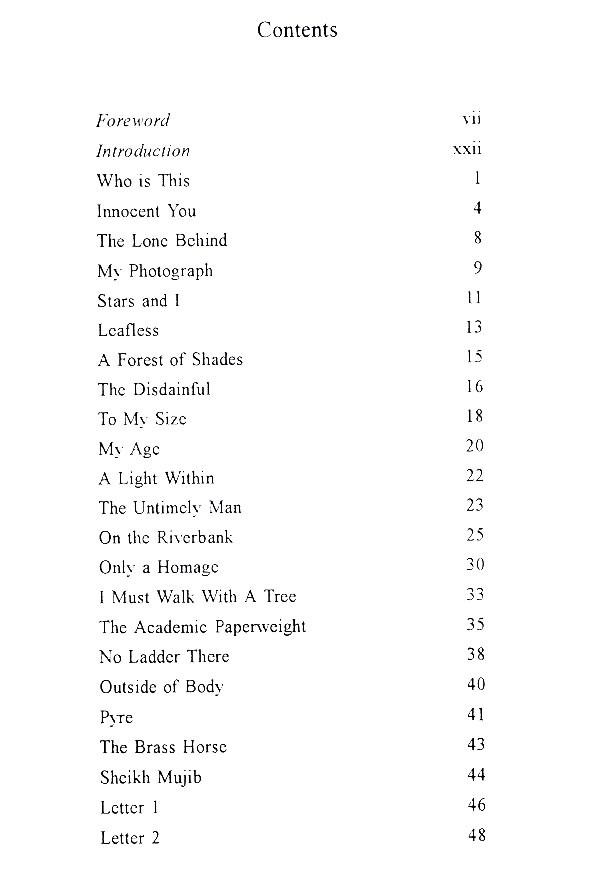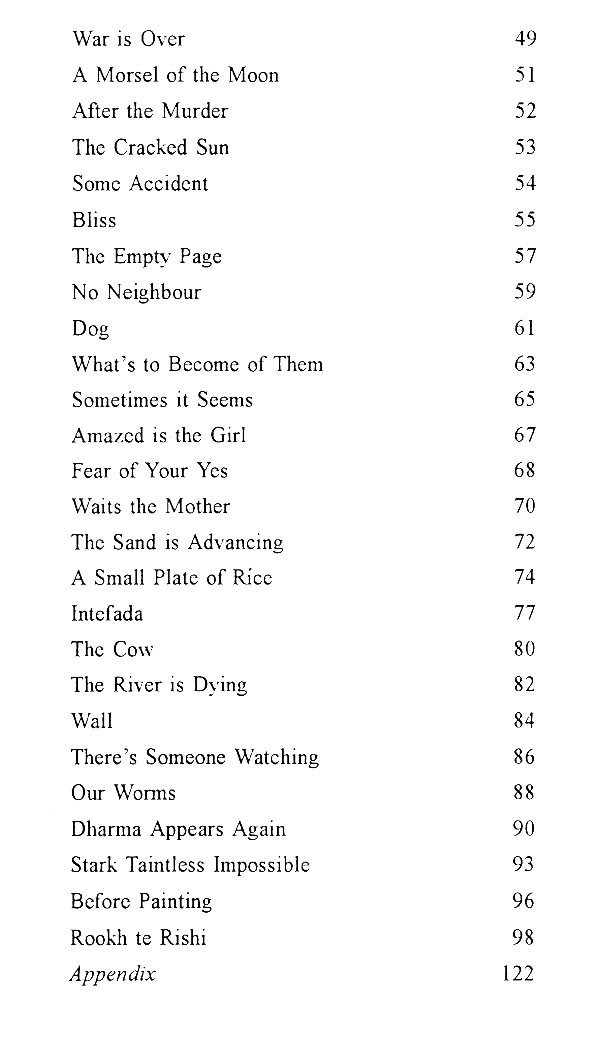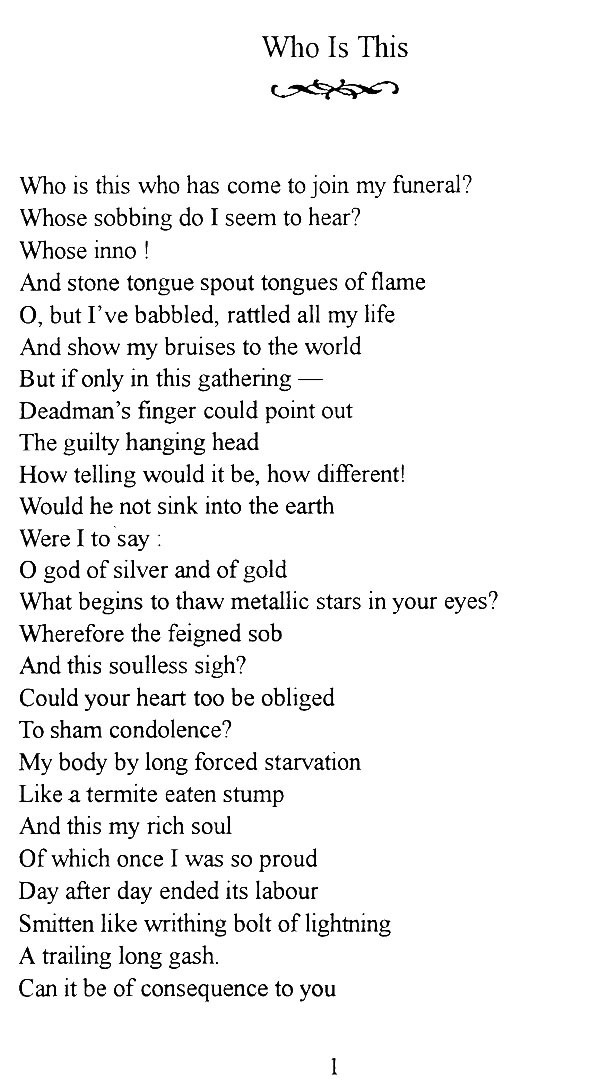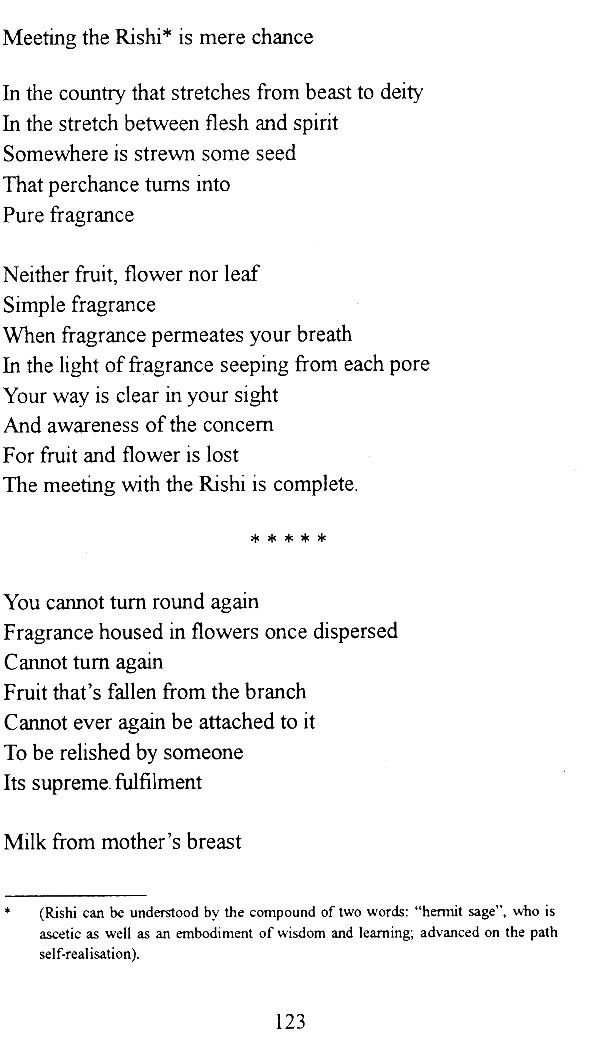
A Light With In- Selected Poems of Harbhajan Singh
Book Specification
| Item Code: | AZG277 |
| Author: | S.C. Narula |
| Publisher: | SAHITYA AKADEMI, DELHI |
| Language: | ENGLISH |
| Edition: | 1998 |
| ISBN: | 8126005408 |
| Pages: | 156 |
| Cover: | PAPERBACK |
| Other Details | 8.50x5.50 inch |
| Weight | 200 gm |
Book Description
One can, therefore, understand and accept this hesitation, trepidation more than mere hesitation. Besides, all that the poet may have to say of his poetry may not be much more than some well known and some not so well known snatches of biographical detail, and which may interest a certain school of criticism only, and may be of not much relevance for the evaluation of his work. For beyond that record what the poet set out to say or record may or may not finally be in the total impact of the finished poem - and if it is, how much more is left beyond what is stated. A whole body of critical comment is an attempt to assess what lies between the intent and end-product of the poet. Whereas in another of his preface, to Mein Jo Beet Gaya, (1970) he had said, that when a friend had offered to write an introduction to his collection of poems, he thought, yes, the introduction would be written, but an opportunity to come face to face with myself, to look more deeply within, would be lost.
Whatever has been written about me is quite substantial. I may not go along with all that is said but I am stirred by a sense of gratitude towards it. I cannot complain that I have not been rightly understood. Temperamentally I am given to writing poetry, and in the process I make an effort to understand myself. Understanding of poetry belongs to the readers, whose interest it may generate. One cannot have anything against those whose interest is not aroused. Even against a poet there is no scope for grouse that he wrote or did not write on certain topics. The reader is inclined by his attitudes. And his attitudes would not only be different from those of the poet, but characteristically quite individual, which he brings to bear on his choice and his reading. Hence I feel grateful to the contemporary literary critics who have found my work interest ing enough for their comment.
I have been using, whatever critical faculty, I have, in the study f contemporaneous writings. In the choice of the work for com ment and evaluation, consciously or unconsciously, I have been ided by a certain principle. I avoided the work of the writers who some time had written about me, or those who I surmised may ite about me.
**Contents and Sample Pages**












